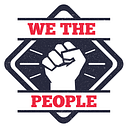What tenants deserve
By Dipita Das, Research & Policy Fellow, and Amina Khalique, Research & Policy Associate
When Dipita’s dad immigrated from Bangladesh to the states in 1991, he first lived in New York, where his good friend allowed him to live rent-free. Free from the burden of paying overwhelming New York City rent prices, my dad was able to find work that paid well and he enjoyed and was able to save in the process. A decade later, he brought my mom and me from Bangladesh and relocated to Detroit, where they experienced the same hospitality and support my dad did in New York, allowing both my parents to save money to purchase their first home in the city. By saving on housing, not having to navigate a complex housing market, and having friends support them while learning a new language and adjusting to life in a new country, my family was able to lay a foundation in the US.
Unfortunately, this is not the case for all immigrants or many folks in our communities across the country. In Michigan, the housing crisis is cutthroat — rooted in long legacies of injustice and working in favor of landlords, not renters. Recently, the federal eviction moratorium, issued for COVID-19 relief, was lifted, which has already begun to and will undoubtedly continue to exacerbate eviction, covid and homelessness rates. According to Poverty Solutions, every year, “Michigan landlords file approximately 200,000 eviction cases and 40,000 Michigan households lose their homes”. Southeast Michigan has some of the highest eviction rates compared to other parts of Michigan and compared to neighboring states.
We believe tenants come first. This is why we created the Tenants Rights report — to build a resource for renters navigating an uncertain and mystifying housing terrain. The country is increasingly waking up to the idea that housing is a basic human right, and that no family or person should have to fight every single day to keep a roof over their head. For many tenants — this fight is continuous and exhausting. This report is one of the few places where Michigan tenants can learn about their rights and responsibilities — in one place, in a language that is understandable and transferable.
Our own community, Detroit, is currently facing a massive eviction crisis, where more than 30,000 tenants are evicted each year. Detroit has the highest rates of eviction and poverty in the state and compared to many other parts of the country. Low-income families living in Detroit are hit the hardest by evictions. Not only are they most vulnerable to being tossed on the street, but many are forced to live in buildings not up to local standards and ordinances. In 2019, “10 percent of rental properties had city clearance to legally operate in six ZIP codes’’ in Detroit. Many landlords were operating homes without heat and windows, and infestations, sewage, and hazardous systems in the home — and city officials allowed this to continue for over a decade. Tenants often have to deal with bad landlords, wrongful evictions, and predatory leasing as a rule, not an exception.
The big issue is that tenants are at a substantial disadvantage when it comes to navigating the housing market and leveraging their rights and resources. Landlords have access to an abundance of resources and tools when filling vacancies. For example, landlords are allowed to perform background checks on tenants to view personal information and screen tenants. Tenants do not have the same privilege. It is difficult to find information on landlords, and affordable housing is in short supply, reducing the information and options available to renters. Landlords also prey on this lopsided environment by employing arcane leasing jargon, making it difficult for renters to understand critical aspects of their lease.
This power imbalance is glaringly obvious in the court and justice system. Unlike in criminal court cases, low-income renters are unable to afford lawyers and are not provided public defenders when presented with an eviction notice. Tenants are often unable to attend court due to the high costs and challenges of finding legal representation. The police also play a critical role in protecting landlords and their property, highlighting the city’s priorities when it comes to who and what our local public dollars are funding to protect. These obstacles lead to devastating outcomes for our communities.
We’re hoping that our report can change this experience for tenants across the state. However, this resource is not enough to adequately protect and support tenants. Reducing evictions in Michigan communities and fighting bad landlords will take more of us joining the movement in fighting for fair and affordable housing for all.
